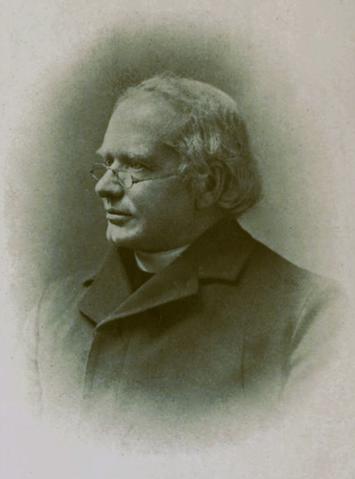
Zone d'identification
Type d'entité
Forme autorisée du nom
forme(s) parallèle(s) du nom
- Canon Peter O’Leary
Forme(s) du nom normalisée(s) selon d'autres conventions
Autre(s) forme(s) du nom
Numéro d'immatriculation des collectivités
Zone de description
Dates d’existence
Historique
Peadar Ó Laoghaire (Peter O’Leary) was born in Lios Carragáin near Macroom in County Cork on 30 April 1839. Born into a bilingual family, he was educated at St. Colman’s College in Fermoy before entering the seminary at St. Patrick’s College, Maynooth, County Kildare. He was ordained to the priesthood in 1867. He went on to serve in several parishes in the diocese of Cloyne, spending his final thirty years (from 1891) as parish priest of Castlelyons (Caisleán Ó Liatháin) in County Cork. From 1906 he was officially titled Canon Peter O’Leary, but he was more commonly addressed as ‘an tAthair Peadar’ (or ‘Father Peter’). Although he did not begin writing in earnest until he was in his fifties, the foundation of Conradh na Gaeilge (1893) spurred him on to take up a career as a writer. He was particularly eager to compile accessible Irish language reading material, especially for a younger generation. O’Leary completed nearly five hundred pieces of work including essays, stories, and translations of The Bible and ‘Don Quixote’, in addition to modernisations of early and medieval Irish texts. His best-known works are ‘Séadna’ (1904) and ‘Mo scéal féin’ (1915). ‘Séadna’, a folk tale, is considered a seminal work in the Gaelic revival, epitomizing O’Leary’s championing of ‘caint na ndaoine’ or the language of the people. His pioneering autobiographical work, ‘Mo Sgéal Féin’, was published by the Irish Book Company, founded by Norma Borthwick and Mairéad Ní Raghallaigh, with whom he was closely associated. O’Leary’s contribution to Irish language literature saw him honoured as a freeman of both Dublin and Cork, with Cork Corporation referring to him as ‘the greatest Irish writer of his age’ when granting him the freedom of the city in 1912. O’Leary died in Castlelyons, County Cork, on 21 March 1920 and was buried in the local cemetery.
Lieux
Statut légal
Fonctions et activités
Textes de référence
Organisation interne/Généalogie
Contexte général
Zone des relations
Zone des points d'accès
Mots-clés - Sujets
Mots-clés - Lieux
Occupations
Zone du contrôle
Identifiant de notice d'autorité
Entretenu par
Identifiant du service d'archives
Règles et/ou conventions utilisées
Statut
Niveau de détail
Dates de production, de révision et de suppression
Langue(s)
Écriture(s)
Sources
John A. Murphy, 'Peadar Ó Laoghaire' in the 'Dictionary of Irish Biography' https://www.dib.ie/biography/o-laoghaire-peadar-tathair-peadar-oleary-peter-a6390